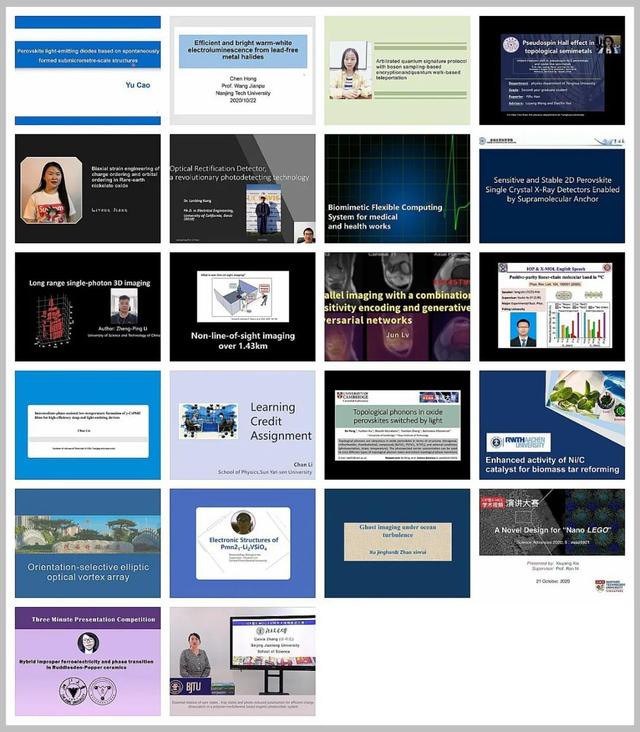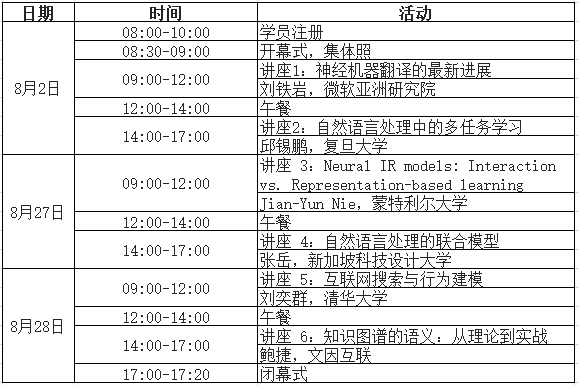英文投稿的一点经验(整合)
1. 首先一定要注意杂志的发表范围, 超出范围的千万别投,要不就是浪费时间;另外,每个杂志都有他们的具体格式要求,一定要按照他们的要求把论文写好,免得浪费时间,前些时候,我的一个同事向一个著名的英文杂志投稿,由于格式问题,人家过两个星期就退回来了,而且说了很多难听的话,说投稿前首先就应该看清楚他们的格式要求;
2. 论文写作一定要言简意赅,特别是摘要,引言和结论部分,特别是摘要和结论不能重复,发现有很多论文这两部分没有差别, 个人认为, 摘要是引人入胜的"药引子",要留悬念;而结论是你论文得出的有证据的东西,要简单明了(很多人写了一大堆,把推测的结果都写上,这种论文质量很差); 另外,很多人认为数据越多, 发表的可能性越大,但经过读一些论文, 发现很多人的论文很烂, 感觉就是数据的简单堆积,所以,论文的重点应该在观点上,保证一篇论文一个新观点,已经足够了.
3. 投稿时,一定要找和你做研究内容相近领域的专家作评阅人,最好是国外的,不是说国内的不好,但就怕有人和你(或你老板)有过节,而且国内的很多所谓专家水平一般,且小心眼;
4. cover letter要简单介绍你的工作的创新性,这样便于论文的快速发表, 当然也应该客气几句,让编辑感到心里舒服,主要是夸杂志好之类的话; 有人写coverletter,就是写上题目、然后说很荣幸投稿之类地话,也有人干脆把摘要全写上,这样个人认为不好,一定用两到三句话说明你论文“新”在哪,这个非常重要。
5. 前些时候看到论坛上很多人说不能写信催编辑,个人认为没关系,必要催信能够让人重视你的论文,一定要让人感到,你的论文在这发不了,好多地方在等着发呢(但很多牛杂志,可不吃这套哟,人家不缺稿,嘿嘿). 当然写信的时候要客气,说一些快速发表对于学术讨论和促进工作等方面的重要性之类的话;
6. 能写英文,就不投中文稿, 特别是不投中文杂志英文版, 好不容易憋了篇英文,还投到低水平的杂志,很不甘心; 最重要的是国内杂志要钱,而国外很多不要。自从国内某杂志告诉我他们之所以收我很高的版面费是为了他们的生存时,我发誓包括以后我的学生就不再投中文杂志了(如果要投,对做材料的人,个人认为金属学报不错,目前收费低);
7. 坚持就是胜利, 按照审稿人的建议好好改你的论文, 只要坚持投稿, 就一定能够被接收的, 如果论文被某杂志拒稿, 但不提倡降低杂志质量再投(应该根据审稿人意见修改后找合适的杂志);有人认为低影响因子的杂志一定中的几率高, 我也这么认为,但一般低影响因子的杂志论文出稿比较慢!
8. 英语不好没关系,是人都知道我们英语没英国和美国人地道,但只要能表达清楚你要表达的意思就好了,而且等审稿人提出来时,一定要从头到尾改一遍,你会发现,这样多次发论文后,你的英语写作水平在一天天提高,拿两年前的论文过来,自己都感觉写得很烂。哈哈。(有好几次,一些审稿人总说我英语不好,这肯定是母语为英语的审稿人,但回信中,我只能说俺英语不好,地球人都知道,但个人认为英语在科技论文里主要是能让人懂我们的思想就够了,而且我也没有太多的钱去让某些改论文的公司帮我做这些事)。
再加两封催稿信!英语不好,但意思表达到了。
第一封,客气点!
Dear Prof. Dr. Editor ***
I submitted our latest work to your journal *** last November. I want to know the review process. If there are some reponses from the reviewers. Would you please tell me the results so that I can deal with it as early as possible? Please understand me that fast publication of our work is important for me.
I appreciate your contribution to the publication of the high quality papers.
Kind thanks to you for your care.
Best Regards
Yours sincerely
第二封, 很不客气了,他们刚开始说他们的审稿周期很短,但近四个月了,也没消息,所以打算投别的地方.
Dear Dr. Prof. ***
I am sorry to make you in trouble. It takes too long for reviewing my manuscript (***) which was submitted to Journal "***". Generally, only about two months are necessary for the reviewing process on my usual submissions to other Journals. Hence, I decide to withdraw this submission.
I am sorry to make this decision. Please understand my condition because the rapid publication of my work is important for me and our group.
I hope that I have chance to get a rapid publication in this Journal in future.
Thank you for your attention and kind help.
Best Regards
Yours sincerely
from:http://chl033.woku.com/article/2721025.html
1、对于我们工科的学生,要想写出论文来,必须有充足的数据及结论作为支撑,这里所说的数据不一定要很多,主要看你这些数据是否可以证明你论文中的结论。
2、在写论文时,不要把实验数据或图表往论文上面一放,只有描述而没有解释,这是编辑或审稿人最不想看到的文章,如果论文属于这一类,评论信中多半会说这样的论文为实验报告,其实编辑和审稿人他们有时也想知道你是如何做出来的,为什么,也在学习。
3、在做实验前,就要考虑写论文了,不要等到作了很多试验,到头来全是:无用!那就惨了。我的经验就是,在试验前,你要考虑为什么要做这试验(实验背景及目的),怎么来做(实验步骤),根据自己的经验猜测可能会得到什么样的结果(结论),通过这样考虑之后,一篇论文的结构基本上出来了,就等着看结果到底如何了,如果和自己猜想的一样,自然可以写论文按照预先设好的步骤。一旦结果不一样,那就要恭喜你了,因为其中有很多东西需要你更深入的研究,可能还会有更大地创新内容。
4、对于写文章,文笔也相当重要,有很好的数据结论但是表达不清楚也不行,应为编辑和审稿人必须为他们的杂志前途着想,他们想让更多的人来读他们的杂志从而提高影响力,所以表达必须很清楚,能够让专业人士和相关学科的人都能够看明白你的论文意思。如果你的文笔不是很好,那就先看一看和你论文类似的文章,档次越高越好,看看别人如何表达的,相似的地方可以模仿。
5、在论文经过自己几次修改后,放他一两天,再回过头来看看,如果自己觉得没有问题,那就给自己课题组有经验的老师或同学看看,看他们给你提出的意见(自己要判断是否可取了)。
6、选择期刊很重要,要不然你投出去后,好消息的就几天退回,怀消息就是几个月退回说不符合杂志范围。选择期刊要根据自己论文的内容,是否和期刊的作者指南相符,此时你最好选者几个不同档次的期刊,从高到低排列,预备被退稿。选择好期刊后,严格按照期刊的投稿要求对论文进行排版,否则你的论文会被编辑退回(这样的论文不在少数),然后大胆地投出去,不管它中不中。
7、等待,特别是第一篇,等待是一个难熬的日子,总是希望投稿后很快就能够收到消息,我曾经也经历过,这也是一个成长过程。
8、收到消息有三种情况,一、接收,恭喜!二、拒绝,不要气馁,你可以认为编辑或审稿人不识货,当然要认真看拒绝信,看编辑或审稿人给你的评论,这就是你论文向能够发表前进了一步(一定要坚持,成为“拒无霸”就差不多了),修改后投向预先选好的档次低一点的杂志,命中率就提高了。三、修改后再看,这就是一种无定性条件,这种情况一定要认真对待,认真修改,有条件叫有经验的老师帮助。
9、如果你的论文曾经被一个期刊发表过,接下来所作的工作继续投向这个期刊,命中率就大多了。
我写出来我的经验,仅供大家参考,结合自己的情况进行处理。
1. 对于影响因子。有的影响因子(IF)很高,50/60.比《Science》和《Nature》的还要高。可能有一下原因:
1)排名靠前的,一般都是综述类期刊被引用率当然高。多为一些学会的年度报告什么的,大多是一些综述性文章,一年也就一期,一期也就几十篇
2)“综合类”的排名一般比“专业类”的高。
3)有些“不要钱”的比要钱的高,像《Science》和《Nature》上的文章一般30美元/一篇。而很多其他国家、政府和其他机构给于经济支持的都不要钱。但并不是说要钱的都不是好文章。
2. 如何选择期刊。是不是只看影响因子高的?
个人认为肯定不是,上面说了。“综合类”的一般比“专业类”的IF高。所以,即使你投的专业类的IF没有综合的高,但是这个综合类的杂志在“业内”人士心中比较高。所以可以选择你所做领域的“权威级”刊物。
发文章的目的是为了能有更多的人可以看到你的工作,所有一定要发到跟你的研究方向最吻合的杂志。
3. 一般美国的杂志对语言要求最低,文风很自由.,你只要没有什么太大的语法错误,一般审稿人都不会说什么.对语言要求最苛刻的就是英国德国
4. 很多好杂志是不要版面费的,就算要版面费,好像学校有规定可以报销,所以大家可以放心大胆的投。不要因为版面费的问题而顾虑。并不说要版面费的都是差的杂志,但有的可以申请减免。
5. 一定要选对杂志!每个杂志都要他的侧重点和内容要求。比如:有的相似的两种杂志,有的侧重“理论”像美国的《PHYTOPATHOLOGY》,而有的侧重于“应用”和其他方面。如《PLANT DIS》.
其次还有格式,每个杂志都它自己的格式(包括图表什么样,图片什么样),要看清楚投稿须知。
6. 一些误区:
a)是不是国外的杂志都是SCI,这点肯定不是,有很多人见到一篇英文的文章就以为是SCI,还有写杂志的中文版是被SCI收录的。有人把《Science》杂志认为是SCI。有人拿本重大学报上的问我影响因子是多少?我真的无法回答。好像我国某个部门好像也在给个杂志算什么影响因子,都是时候把我都搞晕了。好像各个学报在国内是有个什么影响因子。对于这个我也不是很清楚。
b)SCI是不是高不可攀。这个各个专业、各个学科差距确实很大,有的就非常好发这个没办法。只怪我们选错行了。就我这个方向来说没有那么难。
一般高水平的文章需要有些创新。最好是方法学的创新,但是方法学的创新没有那么容易。一般可以改进一下。其次,中国是一个大国,别人要发文章一般要看国内外研究现状,也需要中国的研究现状,就需要我们的论文发出去。所以,如果你没法进行方法学的创新那就在实验材料上占优势,
中国这么大的地方,很可能别人收集的实验材料没有你齐全,所以你再材料上就有了优势,就做了别人没有做过的工作,就极有可能发高水平的论文。
再次.写论文其实就相当讲故事,你如何讲一个平淡无奇的故事讲的趣味昂然.一定要把自己的卖点突出来。
所以大家如果觉得自己的工作做的不错都可以试试往好的杂志投。
7 大胆投稿的好处
不管你写的好不好(当然不能太差,错误一大堆),一定要大胆的投稿。老外审稿都是非常认真的,一般你打一些小的拼写错位都会帮你指出来。需要补做那些实验,还有很多好的建议。他们会一一给你指出来。所以即使你的论文没有被接收,也会得到大量的修改和建议。这样你的就可以接着补做实验,而且文章也变的更好了。说不定论文就上了一个新的层次,可以投更高水平的杂志。
当然,有很多人不愿意补做实验,或者做实验不划算,赶时间毕业,混文凭......就把自己的论文降一个档次。投在了较低的刊物上。感觉不可取。
8 如何安排写论文的时间。
一般SCI从提交稿件到审结束大概要1~2个月,所以一般大多数人都是做完实验之后再写的,而我们刚开始写英文的论文时很慢,一般要一两个月,这样周期就长了。所以我们可以一般做实验一般写论文。因为论文有的部分是固定的,一旦你的实验技术路线出来了你的材料与方法,前面的引言中的国外内外研究现状、背景,所用的方法部分,都可以写了,然后出来一个什么结果就可以像“填空“一样往里面加,最后讨论,摘要,编排格式。
『注意』:论文的讨论部分很重要,不要说空话。平时做实验室就要留心,多想想出现的现象,问题应该怎么解释。
9 参考文献。
如果你参考的文章很多,到时候可能找你的论文中引用的参考文献可能都要一个月,而又不能胡乱写,老外是很看重这个的,他通常会抽取一篇你的参考文献,看看你是不是引用的上面的,有没有引用错误等等。所以在你读文先的时候,可以做读书笔记,把好的,你认为有用的部分摘抄下来或者用电脑粘贴复制下来,注好是那篇文章、那些作者。这样就会节约很多时间。
『注意』:不要乱写参考文献,只要引用的都要要注明,没有引用的不要往里面写。把有价值的东西做好“读书笔记”,节约写论文中编排参考文献的时间。
『注意』:a 参考文献最好有1/3甚至1/2以上是近5年内的文献,这样的论文会让人感觉有水平些。b 其次,最好找一手的文献,不要那种二手的文献。
10.如何应对和回答审稿人提出的问题。
对于审稿人提出的问题,要认真回答,你可以不同意他的看法,但要注意措辞,做到“不卑不亢”!就行,把你的观点论据陈述好。
a.所有问题必须逐条回答。
b.尽量满足意见中需要补充的实验。
c.满足不了的也不要回避,说明不能做的合理理由。
d.审稿人推荐的文献一定要引用,并讨论透彻。
再就是格式上要些清楚:
1. 2.
Q:...... Q:......
A:...... A:......
要一目了然,让评审看的舒服。不要吧所有的问题混在一块回答。自己看的都烦,不知道回答的是哪个。
下面几楼还有本人收集的一些资料,大家共享下。(由于来源比较杂,各个网络没法列出出处,见谅)
*补充:
11. 对于选杂志
对于选杂志确实比较困难,首先要选“对口的杂志”,对于影响因子暂不提。杂志从接受手稿到发表的周期很重要。很多你做的工作别人也在同时进行着。很可能你的工作先完成的,而你投的杂志周期很长,别人后完成的,但是投的杂志周期很短,可能会先于你的发表。这就很郁闷的。所以选杂志要注意周期。至于怎么选确实很困难。
首先:你可以看看发表的论文从接收到正式出版要多少时间。 其次:那就是问问投过那些杂志的人。可以问下和你做相似实验,并且投过你感兴趣的那些杂志的师兄师姐们。也可以在网上求助和搜集信息。 总之,选择杂志是很很复杂的事情,要综合考虑。
12. 写论文时,首先:不要一味的贬低别人的论文的价值,不要动不动就拿自己的“优点”与他人的“缺点”比。要对别人的工作做“客观的评价”。
其次:忌讳用最高级,什么最先进、原创....除非你实实在在的、从根本上是原创的。
from:http://chl033.woku.com/article/2718239.html
如果你希望你的会议论文被EI收录,请参照以下经验:
一、会议论文出版社:会议EI收录其实与主办方关系很小,甚至没有任何关系,第一要素主要处决于论文会议集的出版单位,根据经验,例举全球著名出版社如下:
1、德国斯普林格出版社(SPRINGER):100%EI收录
2、美国机械工程学会出版社(ASME):100%EI收录
3、美国土木工程学会出版社(ASCE):100%EI收录
4、美国电子电气工程计算机学会出版社(IEEE CS):99%EI收录
5、美国电子电气工程出版社(IEEE):90%EI收录
6、英国工程技术出版社(IET):90%EI收录
7、法国Atlantis Press:70%
二、在确定第一要素后,请考察会议主席的诚信度
1、国际一级学会发起:如IFAC、IEEE等。如果IEEE发起的会议IEEE要占51%的注册费,因此,该类会议注册费均在500美元以上。请注意中国2007年只有一个是IEEE发起的,即ICMA2007,其他均不是,2008年目前中国没有一个会议是IEEE发起。
2、国家一级学会发起:如中国计算机学会、中国自动化学会、中国通讯学会等,如WCICA、CCC等
3、各大学校级领导:中国大学校级领导作为主席办国际会议具有中国特色(如ICTE等)。
4、国际一级学会技术支持:如IEEE CS、IEEE、IET、ASME、ASCE等。如ICIC、ICNC)
5、其他学者
三、掌握以上两点后,请注意你的论文格式与英文摘要的书写,
四、EI自然OK!
1、我仅仅讨论的是EI收录的技巧,不是讨论会议的水平。会议仅仅是一个交流的平台,不像期刊,每个都有一个影响因子。
2、ICMA2007确实是2007年唯一在中国由IEEE发起的会议。另外,它不是由IEEE CS出版,而是由IEEE出版,区别于其他会议有三点(1)会议常规注费费高500美元,因IEEE要占大头。(2)设有IEEE会员注册费,这是IEEE会员的权利,因为他们每年交纳500-1000元的会费。(3)EI收录快,两个月全部搞定,这是组织方与IEEE的约定。
3、德国斯普林格出版社确实是全球最高水平的出版社,尽管LNCS被SCI淘汰,但在国外,还是得到同行的认可。LNCS仍然被EI和ISTP双收录,收录的时间处决于出版商论文集递交的时间与EI对论文进行加工时间。由于LNCS出版量太大,且这两年大部分集中在东亚,由于担心被EI也淘汰,所以在大量减少出版量的同时,现在开始延迟递交,获取一个每年的EI收录的平衡,不至于全部集中有2006和2007年,另外他们也希望在2009年重返SCI。所以LNCS出版的论文EI收录肯定没问题,只是时间问题。另外,国内知名大学学报均想向斯普林格出版社靠拢,如武汉大学学报英文版和中南大学英文版均改由斯普林格出版,已从EI中国收录期刊中消失,不过他们已成功被SCI收录。这也从侧面说明了斯普林格出版社的影响力。
3、如果你只是希望论文能被EI,建议你不要投欧美国家的会议,因为他们对EI检索根本不重视,因此,有些会开完后论文集根本不送EI总部,或者拖得很迟。作者曾参加23次国际会议,其中的21次被SCI/EI/ISTP收录,唯一的两次没有被收录的恰恰是2004年美国举办的两个知名国际会议,所以,如果你的目的是希望论文被收录,没必要舍近求远,况且欧美国家的会议注册费在500-800美元间,特贵。
4、英国的IET出版的能EI,一般9个月左右,我06年曾参加了一次国际会议,只发表了论文摘要,居然也被收录了,成了我最短的EI收录论文,仅仅约500字。
5、上面只是我的经验,当然你们无法考证,我发表的5篇斯普林格出版社全部EI、ISTP收录,其中3篇SCI收录。发表在IEEE CS上的6篇全部EI、ISTP收录,发表在IEEE上的5篇中全部ISTP收录,4篇EI收录,一篇没被EI收录是2003年的ICNNSP。发表在IET上的两篇全部EI、ISTP收录。发表在ASCE上的两篇全部EI、ISTP收录。我同学发表在ASME上的3篇全部EI、ISTP收录。
6、国际一级学会发起的会议诚信度应该不需要说明。
7、国家一级学会成员主席一般都是院士,他们的诚信度也应该不需要说明。
8、各大学校级领导做主席,由于他们的特殊身份,因此,发布的会议信息可靠信更高。
from:http://chl033.woku.com/article/2816120.html
文献检索技巧
文献检索是非常麻烦的事情,一般都是通过各种数据库进行检索,但由于购买的电子数据库基本都只有1997年以后的文献,文献量比较少,而且很多领域属于落后于国外20-30年的研究,一般很难查到,即使能查到出处,但无原文。文献查找是个费时费力的事情,需要细心和耐心,反复查找,以下谈谈个人关于如何利用网络进行文献查找的一些经验。
① 搜索引擎的高级功能
搜索引擎主要www.google.com和scholar.google.com,www.baidu.com则仅在检索中文时稍好点,英文很差,用处不大。我们常用的google侧重于网页的检索,Scholar则主要针对学术类文献进行检索,格式主要是pdf,对于论文的引用也会显示,对于知道文献名和作者的情况比较容易直接找到pdf文档,一般这两个搜索引擎要联合使用。
Google的高级检索功能中有几个常用的功能:
(1)锁定关键词检索:使用双引号如”停车”,则所有检索结果均包含双引号中的内容,以减少检索结果量;
(2)文件类型检索:文件类型主要是.pdf和.doc文档,国外文献大部分以pdf格式发布,使用格式限制可以排除很多不必要的检索结果,如输入:停车 filetype:pdf,当然其它google识别的格式都可使用;
(3)指定网址检索:如果发现某个网站有需要的文献,则可以直接指定到该网站检索,以获得需要的资料,如输入:停车 site:www.parknride.com。
Google的详细功能请参照google的高级检索,百度在使用上相同。
② 关键词的使用
检索结果如何,和关键词的使用直接相关,所以,首先要弄清楚在英文中关键词有哪几种表达方式,分别进行检索,而对于文献综述类,可以使用:review、overview、literature review、history、development、trend等和关键词一起检索。
关键词的检索并不是一次就能确定下来的,刚开始选用几个看能否找到,如果找到一些,先初步看看那些文献,对内容有了更深一些的认识后同时也对检索关键词增加了了解,实际上是不断调整检索关键词的过程
③ 参考文献的使用
检索到一些文章后,先要看看文献后的参考文献,国外文献一般都会很详细的列出,可根据参考文献相应的进行有目的的检索,如找到指定数据库的期刊,或者检索作者,作者的个人主页一般提供作者本人发表文献的下载(最好的资源),有些还提供作者的E-mal,可直接写信给作者,一般对方都会提供。
另外,利用google的强大功能,对论文题名、期刊和作者进行检索,期刊的检索经常能发现该期刊被那个数据库收录,则可直接到相应的数据库找到,检索作者则最好加关键词、年等信息以缩小检索范围,而且不要用缩写,会忽略很多信息。
如果找到某个期刊历年的电子数据库,虽然网站有自己的检索功能,但最好不要检索之后其它就放弃了,实际上很多文献不一定检索得到,需要有耐心的一期一期的去看(当然实际上这个工作量并不大,国外的期刊一般每期也就10篇左右),但如果错过了需要的文献则损失大了。
④ 网站回溯
一般找到某个网站有需要的资料后,不要把那篇下下来就关了,通常还有很多资源呢。一种是回到该文献的上层目录,即将文献名删除,保留反斜杠回车即可,如:http://www.parknride/com/documents/prdemand.pdf,则应该再回溯到上层目录:http://www.parknride/com/documents/,有些网站没有设限制,可以看到很多相关文献,或者会找到一些有用的连接,有必要可以再往上层走,一般都会有收获。
还有一种就是很多图书类使用章节编号的,而且使用上面的方法也看不到,则可根据章节顺序编号用支持断点续传的下载软件直接进行下载,如:
http://www.parknride/com/documents/ch01.pdf
则可改成http://www.parknride/com/documents/ch02.pdf等,直到不能下为止,封面用cover,目录contents,参考文献reference或bibliography。
⑤ 通过bbs资源查找相关资料和资源
专业bbs上有很多资源是可以下载的,需要有耐心去找,但国内很多bbs提供下载的资源都是有积分限制的,找到有用的资料后,即可利用搜索引擎的功能直接找。
⑥ 使用代理
国外各大学都有自己的电子数据库,有些是免费,对于有限制的则只好使用代理,一般这种代理需要到专业相关的bbs才可以找到,国内比较好的文献查询资源bbs有:网上读书园地www.readfree.ne和零点花园http://ldbbs.512j.com/bbs/,另外使用代理最好用Myie比较方便。
from:http://chl033.woku.com/article/2840905.html
1.? SCI/EI/ISTP/一级期刊的基本知识;
2.? 如何利用数据库和查找文献;
3.? 如何寻找领域前沿;
4.? 如何撰写高水平论文和投稿;
5.? 把握数量和质量的平衡。
1.1 SCI
1.1.1 SCI索引
SCI(科学引文索引,英文全称Science Citation Index)是美国科学情报研究所(Institute for Scientific Information,简称ISI)拥有的世界著名的期刊文献检索工具。
SCI是SCI的光盘核心库;而SCI-Expanded (简称SCIE)是SCI的扩展库。国内高校在统计论文索引情况时一般对SCI和SCIE都认可为SCI索引。
1.1.2 ISTP会议录索引
ISI Proceedings (ISTP - Index to Scientific & Technical Proceedings),ISTP科学技术会议录索引是美国ISI编辑出版的查阅各种会议录的网络数据库。目前国内很多高校也在统计ISTP索引的数量。
? 一般而言SCI索引的会议必然会被ISTP同时索引,但是反之不然。
1.1.3 影响因子IF
? 期刊引用报告JCR(Jorunal Citation Reports)是ISI对其SCI索引的期刊进行的参数化评价,影响因子IF(Impact Factor) 是其中一项最有代表性的参数。
? IF是当年其它SCI论文引用该刊此前2年所发表文章次数除以该刊前2中发表的文章数目,其值越大,说明该期刊越重要。
影响因子IF举例
? 2004年计算机软件工程大类方面的76种期刊中,影响因子最大的是JOURNAL OF MACHINE LEARNING RESEARCH(5.952),最小的是COMPUTER GRAPHICS WORLD为0,国内最高水平的JOURNAL OF COMPUTER SCIENCE&TECHNOLOGY为0.28,2004年LNCS的影响因子为0.513
? 需要强调单篇文章的引用次数问题,自引与他引的问题。
1.1.4 SCI收录期刊分区
随SCI在国内的普遍使用,高影响因子期刊的论文刊发量逐渐成为学术评价的关注重点。但是一个刊物的影响引子每年有变动,各个领域刊物影响引子也不具可比性。因此,中科院根据影响因子大小,按学科对SCI收录期刊进行年度分区,水平从高到低分为1234四个区。这样对一个刊物水平高低的认定维持在相对稳定的定义上。不论什么领域,只要论文发表的刊物在同一分区上,就可以认为这些论文水平相当。2004年版SCI分区目录http://10.11.32.135/cglw/scie_2004FQ.asp
1.1.5 会议是否SCI索引
? 最直接的方法是看会议主页上的说明。如果说明中没有明确肯定,则可以写信给会议的组织方咨询,一般老外答复都是比较含蓄的(例如我师兄的ICCS经历),而国内的答复就会非常直接(其实国内会议如果是SCI的都会在主页上隆重注明的)。
? 另外还可以直接查询看这个会议前几年是否都是SCI索引,但是有的会议会隔年索引,所以这个办法不是非常可靠。使用这个办法还要注意SCI索引中会议的缩写格式,以免漏查。
1.1.6 LNCS会议被SCI收录
? 目前计算机领域的LNCS系列会议基本会被SCI收录。
1.1.7?最后要说明的是索引周期,即从论文出版到被SCI索引需要一段时间,会议论文一般大概是三个月左右。
1.2 EI索引
1.2.1? 美国《工程索引》 EI(Engineering Index),由美国工程信息公司(Engineering Information Inc.)创办,主要收录工程技术期刊文献和会议文献的大型检索系统。
1.2.2 EI-Compendex和Page One
? Ei Compendex标引文摘收录论文的题录、摘要、主题词和分类号,进行深加工;有没有主题词和分类号是判断论文是否被Ei正式收录的唯一标志。
? 据说2006年起EI取消光盘版,只有EI Village2,即 Compendex和Page One合并。
Ei PageOne
? Ei PageOne题录不列入文摘,没有主题词和分类号,不进行深加工。有的PageOne也带有摘要,但没有主题词和分类号。所以带有文摘不一定算做正式进入Ei。
? 请注意学校里面说的EI一般是指前者!在数据库中检索时,要主要看清楚检索结果中的检索序列号是否11位,并且数据库源是否Compendex。
1.2.3 SCI和EI会议
? 目前学校更认可SCI索引,虽然很多很高级别的会议也只被EI收而不被SCI收。从这一点来说,其实文章最好先投SCI的会议,以免“浪费”。
? 对期刊而言,SCI有一个评价标准例如影响因子等,而EI则不然,所以这对EI也是一个不太好的因素。
索引的周期
? 对会议来说,SCI的索引周期前面说过一般是三个月左右,而EI就没有固定规律,从一两个月到将近一年的都曾经碰到过。
1.2.4 确定会议是否EI索引
? 对一个会议来说,是否确定EI收很难,即使是会议的主办方,一般也不可能百分百确定本届全部几册都会被索引(依据:我师兄投CE2004时电话咨询的过程)。但是一般来说,如果一个会连续几届都被EI全收,那么这届就不会有问题。另外,有些会议会在海报上注明自己是会被EI收的,这种也是可以投的。
比较有用的LN系列
? 德国Springer出版社的LNCS(Lecture Notes in Computer Science)和荷兰的Brill Academic出版社的LSCCS (Lecture Series on Computer and Computational Sciences)都确定被SCI全收。
? 注意:同一个出版社的其他会议论文集系列不一定会被SCI收!例如Springer的Lecture Notes in Computational Intelligence。
推荐的一些国际会议
? 周围同学和一些老师公认的评价原则(重要性依次递减):针对性、届数、录用篇数、录用率、特邀嘉宾的影响力。
? 网络上大家公认新加坡南洋理工的一个帖子,网址如下:
? http://www.ntu.edu.sg/home/assourav/crank.htm
? 请注意这些会议级别和SCI、EI并无直接关系,也就是说,顶级不见得SCI或者EI。
? Rank 1的文章1篇,胜过普通会议10篇。
AREA: System Technology
SIGCOMM: ACM Conf on Comm Architectures, Protocols & Apps
INFOCOM: Annual Joint Conf IEEE Comp & Comm Soc
SOSP: ACM SIGOPS Symp on OS Principles
SOSDI: Usenix Symp on OS Design and Implementation
CCS: ACM Conf on Comp and Communications Security
IEEE Symposium on Security and Privacy
MOBICOM: ACM Intl Conf on Mobile Computing and Networking
USENIX Conf on Internet Tech and Sys
ICNP: Intl Conf on Network Protocols
以上都是本人关注的网络、系统和安全的顶级会议,许多论文后来都被推荐到IEEE 或ACM Transactions系列。
关于LNCS
? 如果只是认准SCI的话,推荐,相关的会议列表可在其主页上下载,一般比较完整详细,但也有计划外指标(这几年国内主办了不少)。
? 如果感觉你自己的文章很有感觉,或者觉得你的idea过于新奇,不妨投投顶级会议看看最权威的评价,对于你的研究将会有莫大的帮助。
? 按照前几届师兄的提法,不要投业内知名的垃圾会议如ICMLC和SMC,LNCS也有此倾向。
中文期刊级别
? 一级与A类,一级要比A类的范围小些。一级其实是校人事处定的,估计最初是定给学校的教职员工的;而A类是明确定给研究生教育的,所以从两者的选取原则上有一定差别。
? 请注意,这里列出的一级是某高校的一级,各个学校和单位的目录可能会有所差别
本学科一级名单
? 原有的:计算机科学与技术学报(英文版)、电子学报(中、英文版)、计算机学报(中、英文版)、软件学报、计算机研究与发展、自动化学报、系统工程理论与实践(中、英文版)、模式识别与人工智能、计算机辅助设计与图形学学报、中国图象图形学报。
? 去年学校新增加的:计算机集成制造系统、控制与决策。
其它相关学科一级名单
? 科学通报(中、英文版)、中国科学(A-E辑)(中、英文版)、制理论与应用、通信学报、电子与信息学报等。具体目录可参考学校人事处文件。
2 如何使用文献数据库
? IEL:即IEE和IEEE,最具知名度和影响力;
? Elsevier Science Direct On Site (SDOS):荷兰的一个出版集团,也极其影响力;
? ACM Digital Library:ACM的所有文献;
? Lecture Notes in Computer Science:即Springer公司的LNCS系列会议,虽是SCI但水平不高,作为文献价值不大。
? CNKI:清华的中国期刊网,能全文检索。
SCI数据库的使用
? ISI Web of Knowledge:即SCI检索库;
? 熟练使用SCI数据库非常有用,请务必掌握;
? 除查找被收录的文献外,还可以使用JCR;
JCR和影响因子
? Journal Citation Report,包括各类期刊的影响因子。
? 建议找到一个学科,按影响因子IF排序,一般来说,IF高的难度大,低的难度小,不过太低的,如<0.1比较危险,可能被淘汰。
? 注意IF可以通过计算得到,国内有些期刊如《计算机学报》、《计算机研究与发展》等得出自己的IF,但我们所谈论的是SCI期刊间的引用,不可同日而语。
利用GOOGLE
? 其实,从某种意义上讲,GOOGLE也很有效。直接输入全部或部分文献名,作者名等均可;
? 我来浙大前,在自己这个方向搜集了大约200篇文献,95%从因特网上获取;
? 无法从因特网上直接获取的文献,往往被引用率也不高,因为别人难以得到。
? 建议至少读500篇外文文献,其中100篇精读。
3.1 如何寻找领域前沿
确定方向,读一些国内一级或IEEE Magazine的综述;
熟悉本领域最具影响的国际期刊(IEEE Transactions)和顶级会议(Rank 1);
在最近3年的期刊或论文集中寻找自己感兴趣方向的文章5篇左右;
认真反复读懂(可能需要较长时间);
3.2 如何寻找领域前沿
跟踪国际会议,把握前沿脉搏;(Hotnets)
熟悉领域大牛,争取和他们建立通信,定期访问他们的主页,了解最新动向;(我的体会);
4.1 如何撰写高水平论文
话题要新,紧跟前沿;
文献要新、丰富、高水平;投国外一般不引用国内期刊,投国内则必须;
最好有数学公式,体现理论深度;
试验环境和结果要介绍清楚;
性能最好和前人方案比较,有说服力;
投国外多用图表,投国内多用定义。
4.2 如何投稿
找到网站,国外一般可以电子投稿;国内则一般电子和书面文档均需要;
国外无需审稿费,国内期刊要审稿费,一般100-200元,会议一般不要;
发表费用,国外期刊基本不用,国内一级一般>1000元,国际会议一般2000-4000,学生注册可以便宜些。
投稿后,隔1、2个月可以催一下。
如何投稿
不论是否要求,建议另起一页,写清所有作者的学校、身份、简历和研究方向;
如投中文一级期刊,不妨写一份简单的说明,如文章成果的一些解释等,言词尽量客气。
如果投会议,可以自己选择一些会议并设定时间表,投A如被拒改B,接着CDE等,时间安排好一年至少可以投6-8轮。
和老板沟通投稿事宜
有些老板希望发高水平国际期刊或顶级会议;
有些老板可能不在意,只要SCI/EI就行;
无论如何,投稿前务必和老板沟通一下,避免不必要的麻烦。
把握数量和质量的平衡
清楚老板对自己的要求;
先易后难,循序渐进。先发1-2篇会议,再1-2篇国内期刊,最后1-2篇国际高水平期刊或顶级会议。
多发文章:损失太多经费、一稿多投道德风险、浪费宝贵的时间和精力。
注意事项:
不要一稿多投,但尚无明确定义,一中一英?一个会议一个期刊?
不要伪造数据,胡编乱造。
如果今后想在学术上继续发展,更要注意文章质量而非数量。(SCI删除的例子)。
from:http://chl033.woku.com/article/2893317.html
计算机学术期刊排名:Computer Science Journal Rankings
AREA: Databases
Premium:
Information Systems
ACM Trans on Database Systems
IEEE Trans on Knowledge & Data Engineering
VLDB Intl Journal
ACM Trans on Information Systems
Jnl of Intell. Info Systems: Integrating AI and DB Tech
Leading:
Distributed and Parallel Databases
Data & Knowledge Engineering
Jnl of Systems Integration
Jnl. of Data Mining & Knowledge Discovery
Intl Jnl of Computer & Information Sciences
Intl Jnl of Cooperative Information Systems
Intl Jnl of Intelligent & Cooperative Info. Systems
Intl Jnl of Geographic Information Systems
Journal of Information Processing and Cybernetics
Geoinformatica
Journal on Digital Libraries
Journal of the American Society for Information Science
Journal of Intelligent Information Systems
Reputable:
Data Engineering
Knowledge and Information Systems
Advances in Engineering Software
Information & Software Technology
Data Base
Data Base Management
Database and Network Journal
Journal of Data Warehousing
Journal of Combinatorics, Information and System Sciences
International Journal of Information Technology
Transactions of Information Processing Society of Japan
SIGMOD Record
IEICE Data Engineering
Others:
Journal of Computing Information Science
Journal of Information Science and Engineering
European Journal of Information Systems
Journal of Databases Management
Database for Advances in Information Systems
Data Management
Datamation
Government Data Systems
Journal of Database Administration
Journal of the Association for Education Data Systems
Information Processing and Management
Journal of Information Science: Principles and Practice
Database Programming and Design
Scandinavian Journal of Information System
AREA: Artificial Intelligence
Premium:
Artificial Intelligence
Computational Linguistics
IEEE Trans on Pattern Analysis and Machine Intl
IEEE Trans on Robotics and Automation
IEEE Trans on Image Processing
Journal of AI Research
Neural Computation
Machine Learning
Intl Jnl of Computer Vision
IEEE Trans on Neural Networks
Leading:
Artificial Intelligence Review
ACM Transactions on Asian Language Information Processing
AI Magazine
Annals of Mathematics and AI
Applied Artificial Intelligence
Applied Intelligence
Artificial Intelligence in Medicine
Autonomous Agents and Multi-Agent Systems
Computational Intelligence
Complex Systems
Computer Speech and Language
Computer Support for Collaborative Learning (CSCL)
Computer Vision and Image Understanding
Connection Science
CVGIP: Graphical Models & Image Processing
CVGIP: Image Understanding
Expert Systems with Applications: An Intl Jnl
IEEE Transaction on Speech and Audio Proc
IEEE Trans on Systems, Man, & Cybernetics, Part A & B
Intl Jnl on Artificial Intelligence Tools
Jnl of Experimental & Theoretical AI
Journal of East Asian Linguistics
Knowledge Engineering Review
Machine Translation
Neural Networks
Network Computing in Neural Systems
Pattern Analysis and Applications
Pattern Recognition
Neurocomputing
User Modelling & User-Adapted Interaction: an Intl Jnl
Reputable:
Communications of COLIPS
Computer Processing of Chinese & Oriental Languages
Computers and Artificial Intelligence
Cybernetics and Systems
Engineering Intelligent Systems for EE and CS
Expert Systems
Evolutionary Computation
Intelligent Instruments & Computers
Intl Jnl for AI in Engineering
Intl Jnl of Applied Expert Systems
Intl Jnl of Approximate Reasoning
Intl Jnl of Intelligent Systems
Intl Jnl of Neural Systems
Intl Jnl of Pattern Recognition & AI
Intl Journal of Document Analysis and Recognition
IEEE Transactions on Fuzzy Systems
Journal of Intelligent and Fuzzy Systems
Knowledge Acquisition Jnl
Knowledge-Based Systems
Kybernetika
Natural Language Engineering
Neural Computing & Applications
Network Society
Neural Processing Letters
Pattern Recognition Letters
IEE Proceedings: Vision, Image and Signal Proc
Speech Communications
Journal of Neural Network Computing
Minds and Machines: Jnl for AI, Philosopy and Cog. Sc
Intl Jnl of Uncertainty, Fuzziness and KBS
Heuristics: Jnl of Knowledge Engineering
Engineering Applications of AI
Jnl. of Japanese Soc. of AI
Australian Jnl of Intelligent Information Proc Sys
Intelligent Data Analysis
Image and Vision Computing
Journal of Artificial Neural Networks
Neural, Parallel and Scientific Computations
Robotica
Others:
AIAA Journal
Canadian Artificial Intelligence
Journal of Advanced Robotics
Journal of Artificial Intelligence in Education
Journal of Artificial Intelligence in Engineering, Automation, and Manufacturing
Journal of Artificial Intelligence, Neural Networks and Complex
Journal of Computational Acoustics
Journal of Computational Neuroscience
Journal of Computational Vision
Journal of Card. Imaging
Journal of Cybernetics
Journal of Cybernetics and Information Science
Journal of Design Automation of Embedded Systems
Journal of Knowledge-Based Intelligent Engineering Systems
Journal of Intelligent Robotic Systems: Theory and Applications
Journal of Systems Automation: Research and Applications
Journal of Automation and Remote Control
Journal of Intelligent Automation & Soft Computing
Journal of Intelligent Control and Systems
Journal of Intelligent and Robotic Systems
Journal of Intelligent Manufacturing
Journal of Intelligent Systems Engineering
Journal of Intelligence System
Journal of Intelligent Technology
Journal of Literary and Linguistic Computing
Journal of Machine Vision and Applications
Journal of Man-Machine Studies
Journal on Neural and Mass-Parallel Computing and Information Systems
Journal of Robotics and Mechatronics
Journal of Robotic Systems
Journal of Robotics and Autonomous Systems
Journal of Robotics Research
Journal of the Robotics Society of Japan
Journal of Computational Neurology
International Journal of Lexicography
Journal of intelligent Computing
International Journal of Intelligent Systems in Accounting Finance and Management
International Journal of Speech Technology
Engineering Design and Automation Journal
International Journal of Machine Tools & Manufacturing
International Journal of Corpus Linguistics
Journal of Chinese Information Processing
AREA: Algorithms, Theory and Related Areas
Premium:
Algorithmica
Computational Complexity
Discrete & Computational Geometry
IEEE Trans on Information Theory
Information & Computation
Jnl of Algorithms
Jnl of Computer and System Sciences
Jnl of the Association for Computing Machinery
SIAM Jnl on Computing
ACM Trans on Computational Logic (TOCL)
Leading:
Acta Informatica
Chicago Journal of Theoretical Computer Science
Designs, Codes and Cryptography
Jnl of Symbolic Computation
Journal of Automated Reasoning
Journal of Graph Algorithms and Applications
Journal of Complexity
Journal of Cryptology
JOTA - J. of Optimization: Theory and Applications
Mathematics of Computation
Mathematical Programming
Optimization: A J. of Mathematical Programming and Operations Research
ORSA Journal of Computing
Nordic J of Computing (BIT)
SIAM Journal on Optimization
Random Structures & Algorithms
Theoretical Computer Science
Reputable:
Applicable Algebra in Eng., Comm., and Computing
Applied Maths and Computation
BIT: Computer Science and Numerical Mathematics
Bulletin of the European Assoc. for Theoretical CS
Computational and Applied Maths
Computers & Mathematics With Applications
Combinatorics, Probability & Computing
European Journal of OR
Journal of Computer and System Sciences International
Intl Jnl of Foundations of Computer Science
Others:
Problem Solving Technologies
Journal of Algebraic Combinatorics
Journal of Combinatorial Designs
Journal of Combinatorial Optimization
Journal of Experimental Algorithmics
Journal of Electronic Imaging
Intl Jnl for Numerical Methods in Engineering
SIAM Journal of Algorithms and Discrete Methods
SIAM Journal on Algebraic and Discrete Methods
SIAM Journal on Numerical Analysis
SIAM Journal on Matrix Analysis and Applications
Naval Journal of Operations Research
Journal of Scheduling
Electronic Journal of Combinatorics
Journal of Mathematical Modeling and Scientific Computing
Journal of Mathematical Structures in Computer Science
International Journal on Mathematical and Computer Models
Journal of Global Optimization
Journal of Computational Statistics and Data Analysis
AREA: Hardware and Architecture
Premium:
IEEE Trans on Circuits and Systems I
IEEE Trans on Computers
Integration: The VLSI Jnl
VLSI Design
Leading:
IEEE Trans on Circuits and Systems II
Jnl of Microcomputer Applications
Microprocessing and Microprogramming
Reputable:
Computer Design
Digital Processes
Electronics Letters,
EUROMICRO Jnl
Jnl of Circuits, Systems and Computers
Jnl of Electronics, Information and Systems
Microprocessors and Microsystems
Supercomputer
IEEE Journal on Computer Architectures for Intelligent Machines
Others:
Signal Processing
Technical Journal of Digital Equipment Corporation
The Linux Journal
IBM Application System/400 Technology Journal
Journal of System Architecture
NEC Technical Journal
International Journal of Computer Aided VLSI Design
MRS Internet Journal of Nitride Semiconductor Research
Standards and Interface Journal
International Journal of Mini and Microcomputers
Journal of Microelectronic Systems Integration
User Modeling and User-Adapted Interaction
The X Resource: A Practical Journal of the X Window System
Hewlett-Packard Journal
AREA: Programming Languages and Software Engineering
Premium:
ACM Trans on Programming Languages & Systems
IEEE Trans on Software Engineering
Jnl of Functional Programming
ACM Trans on S/W Eng and Methodology
Formal Methods in System Design
Leading:
Theory and Practice of Logic Programming (past: Jnl of Logic Programming)
IEE Procs - Software
Jnl of Software Maintenance: Research and Practice
Higher-Order and Symbolic Computation (previously known as
LISP and Symbolic Computation)
Software: Practice and Experience
Jnl of Functional and Logic Programming
The Constraints Journal
Journal of Logic and Computation
Journal of Programming Languages
Empirical Software Engineering
Automated Software Engineering
Formal Aspects of Computing
Object-Oriented Systems
Theory and Practice of Object Systems
Journal of Object-Oriented Programming
IEEE Transactions on Reliability
Future Generations Computer Systems: FGCS
Science of Computer Programming
Reputable:
Programming and Computer Software
Jnl of Systems and Software
Intl Jnl on Software Engineering and Knowledge Eng
New Generation Computing
Software Quality Journal
Software Testing, Verification and Reliability
Computer Languages
Requirements Engineering Journal
IEE Software Engineering Journal
Others:
Journal of the Interest Group in Pure and Applied Logic
Notre Dame Journal of Formal Logic
Journal of Computer and Software Engineering
Journal of Structured Programming
International Journal on Software Tools for Technology Transfer
Chinese Journal of Advanced Software Research
Journal of Computing Systems in Engineering
Journal of Symbolic Logic
Project Management Journal
International Journal of Reliability, Quality, and Safety
Journal for Applied Nonclassical Logic
The Journal of Defense Software Engineering
Computer & Control Engineering Journal
Journal of Logic, Language and Information
Computer Systems Engineering Journal
Journal of Automata, Languages and Combinatorics
The C Users Journal
Information Design Journal
Java Developer's Journal
C++ Journal
Fortran Journal
Journal of Scientific Programming
Logic Journal of the IGPL
Journal of Philosophical Logic
Journal of Quality Technology
International Journal of Technology Management
Software Process Modeling and Technology
Journal of Computers and Translation
Journal of C Language Translation
Journal of Electronic Testing
Software Engineering Notes
AREA: Media & Software Technology
Premium:
ACM Trans on Graphics
ACM Trans on Modeling & Computer Simulation
Computer Aided Geometric Design
Computer-Aided Design
IEEE Trans on Visualization and Computer Graphics
SIAM Jnl on Scientific and Statistical Computing
Multimedia Systems
Performance Evaluation
Journal of Visual Communication and Image Representation
Leading:
Computers & Education
ACM Trans on Mathematical Software
Hypermedia
Intl Jnl of Modelling & Simulation
Intl Jnl of Shape Modelling
Intl Jnl on Computational Geometry & Apps
Simulation & Games
Simulation & Gaming
Visual Computer
Computational Geometry - Theory and Applications
Simulation
Multimedia Tools & Applications
Intl Jnl in Computer Simulation
Integrated Computer-Aided Engineering
Information Retrieval
Reputable:
Computer Graphics Forum: Jnl of the Europ As. for CG
Computer & Graphics
Intl Jnl of Applied Software Technology
Jnl of Computational and Applied Mathematics
Mathematical and Computer Modelling
Mathematics and Computers in Simulation
International Journal of Computer Mathematics
Simulation Practice and Theory
The New Review of Hypermedia & Multimedia: Apps & Res
Trans of the Intl Assoc for Math and Comps in Simuln
Computer Simulation: Modeling & Analysis
Trans of the Society for Computer Simulation
Journal of Visual Languages and Computing
Engineering Computations
Software - Concepts and Tools
Journal of Visualization and Computer Animation
The International Journal of The Eurographics Association
Others:
Iranian Journal of Electrical and Computer Engineering
Journal of Digital Imaging
Journal of Concurrent Engineering: Applications and Research
Digital Technical Journal
Interface Journal of New Music Research
SPIE Journal of Electronic Imaging
The Journal of Electronic Commerce
Journal of Graphics Tools
International Journal of Information Processing and Management
Journal of Library Automation
The Journal of Computer Game Design
Journal of Documentation
Virtual Prototyping Journal
Journal of Computing and Information Technology
SIAM Journal on Scientific Computing.
Journal of the Virtual Reality Society
Journal of Virtual Reality Research, Development and Applications
Journal of Computational and Graphical Statistics
AREA: System Technology
Premium:
IEEE Trans on Communications
Jnl of Parallel and Distributed Computing
ACM Trans on Computer Systems
IEEE/ACM Trans on Networking
ACM Trans on Information Systems
IEEE Trans on Parallel and Distributed Systems
Distributed Computing
IEEE Jnl on Selected Areas in Communication
Computer Networks (Previously "& ISDN Networks")
Real-time Systems
IEEE Trans on Computers
Integration: The VLSI Jnl
VLSI Design
Leading:
International Journal of Parallel Programming
Networks
Internet Research - Electronic Networking Applications and Policy
Computer Communications
Jnl of Computer Communications
Jnl of Network and Computer Applications
Parallel Computing
Mobile Networks and Applications
Jnl of High Speed Networks
Wireless Networks
Queueing Systems
The Intl Jnl of Supercomputer Applications
Concurrency - Practice and Experience
IEEE Journal of Internet Computing
ACM Transactions on Information and System Security
Jnl of Microcomputer Applications
Journal of Systems Architecture (past: Microprocessing and Microprogramming)
Reputable:
Computers & Security
IEE Proc. - Communications
IEICE Trans on Fundamentals of Elec., Comm., and Comp.
IEICE Trans on Communications
Mobile Computing and Communicatons Review
Distributed Systems Engineering Jnl
Intl Jnl of High Speed Computing
World Wide Web Journal
Electronic Networking
Intl Jnl of Communication Systems
Signal Processing: Image Communication
Telecommunication Systems
International Journal of Systems Science
Journal of Cryptography
Internet Security Journal
Journal of Networks and Systems Management
International Journal of Wireless Information Networks
An Interactive Journal of Mobile Computing
Computer Design
Digital Processes
EUROMICRO Jnl
Jnl of Circuits, Systems and Computers
Jnl of Electronics, Information and Systems
Microprocessors and Microsystems
Supercomputer
IEEE Journal on Computer Architectures for Intelligent Machines
Others:
Information & Systems Technology
Jnl of Computer Security
Parallel Processing Letters
IBM Systems Journal
The International Journal of Computer and Telecommunications Networking
USENIX Computing Systems Journal
AT&T Technical Journal
Journal of Internetworking: Research and Experience
Fujitsu Scientific and Technical Journal
Computer Music Journal
Journal of Computer-based Instruction
ICL Technical Journal
International Journal of Imaging Systems and Technology
International Journal of Digital and Analog Communication System
Journal of Supercomputer Application of High Performance Computing
Journal of Decision Support Systems
Journal of Computer Research and Development
British Telecommunications Technology Journal
The Journal of Interactive Media and Education
International Journal of Time-Critical Computing Systems
International. Journal of CAD/ CAM & Comp. Graphics
Educational Communication and Technology Journal
The International Journal on the Development and Application of Standards for Computers, Data Communications and Interfaces
Journal of Electronic Publishing
Web Journal
Microsoft Systems Journal
Journal of Data & Computer Communication
Journal of Supercomputing
Journal of Imaging Technology
INESC Journal on Junior Activities in Science and Technology
The Journal of Electronic Data Interchange
ISPRS Journal of Photogrammetry and Remote Sensing
International Journal of CIM
International Journal of Circuit Theory and Applications
Journal of Digital Systems
IVHS Journal
Journal Design Automation and Fault Tolerant Computing
Journal of the American Voice I/O Society
Journal of the Communications Research Lab
International Journal of Construction information Technology
Journal of Computer Communication Review
Real-Time Imaging Journal
Journal of Lightwave Technology
Journal of Advanced Automation Technology
Journal of Technology Transfer
TI Technical Journal
Journal of Imaging Science and Technology
Journal of Mathematical Imaging and Vision
The journal of the Interactive Multimedia Association
Transputer Communication Journal
Bell System Technical Journal
Journal of Combinatorial Designs
Journal of Combinatorial Optimization
Journal of Reliable Computing
Journal of Digital Library Research
Signal Processing
Technical Journal of Digital Equipment Corporation
The Linux Journal
IBM Application System/400 Technology Journal
Journal of System Architecture
NEC Technical Journal
International Journal of Computer Aided VLSI Design
MRS Internet Journal of Nitride Semiconductor Research
Standards and Interface Journal
International Journal of Mini and Microcomputers
Journal of Microelectronic Systems Integration
User Modeling and User-Adapted Interaction
The X Resource: A Practical Journal of the X Window System
Hewlett-Packard Journal
AREA: Biomedical
Premium:
Jnl of the American Medical Informatics Assoc (JAMIA)
Journal of Computational Biology
Leading:
Computers in Biomedical Research
Methods of Information in Medicine
Medical Decision Making
Bioinformatics
Reputable:
Computer Applications in the BioSciences: CABIOS
Computers in Biology and Medicine
Medical Informatics
International Journal of Medical Informatics
Others:
Journal of Applied and Computational Harmonic Analysis
International Journal of Bio-Medical Computing
Australian Journal of Biological Sciences
Journal of Computer Aided Surgery
Journal of Computer-Aided Molecular Design
International Journal of Clinical Monitoring and Computing
Journal of Chemical Information and Computer Sciences
AREA: General Computer Science and Related Journals
Premium:
SIAM Jnl on Discrete Mathematics
Operations Research
Leading:
Communications of the ACM
ACM Computing Surveys
Procs of the IEEE
Information Processing Letters
IBM Journal of R & D
International Journal of General Systems
Adaptive Behavior
Discrete Applied Mathematics
Discrete Mathematics
Reputable:
Computer Journal
Computing
Fuzzy Sets and Systems
IBS Computing Quarterly
Information Sciences
Intl Jnl of Computer Applications in Technology
Intl Jnl of Computer System Science & Engineering
Jnl of Computer Science and Technology
Jnl of Computing and Information
Jnl of Information Processing
Australian Computer Jnl
Journal on Universal Computer Science
IEICE Trans on Infomation and Systems
Computer Methods and Programs in Biomedicine
Finite Fields and their Applications
Instructional Science
Others:
Journal of Computational Chemistry
Computers and Geosciences: An International Journal
Computer/Law Journal
Journal of Law and Information Science
Journal of Combinational Mathematics and Combinational Computer science
International Journal of Computers and Mathematics
Journal of Computational Physics
Journal of Computational Physiology
Journal of Computing and Electronics in Agriculture
Journal of Computing in Civil Engineering
The Journal of Engineering with Computers
Social Science Computing Journal
International Journal of Computer Integrated Manufacturing
Journal of the National Academy of Sciences
Journal of Indian Institute of Science
British Journal of Educational Technology
International Journal of Mathematical Education in Science and Technology
Computer and High Technology Law Journal
Japan Journal of Science, Technology and Society
Journal of Computers in the Humanities
Cybermetrics: International Journal of Scientometrics, Informetrics and Bibliometrics
Journal of Research of the National Institute of Standards and Technology
International Journal of Computer Science and Information Management
Chinese Journal of Computers
Journal Educational Computing Research
International Journal of Human-Computer Studies
Journal of Computer Assisted Learning
AICHE Journal
South African Journal of Computer Science
Journal of the Brazilian Computer Society
SMPTE Journal
CSCW-Journal
ICCA Journal
Journal of ASIS
Journal of Computer Assisted Tomography
URISA Journal
INFORMATIK Journal of the Swiss Informaticians Society
Journal of KISS, The Korea Information Science Society
Journal of Informatics in Primary Care
AIEDAM journal
NCR Journal of Research and Development
JSME International Journal
Journal of the Swiss Computer Science Society
The Canadian Journal of Information Science
Australian Computer Science Communications
Interacting with Computers
ISPRS Journal
Journal of RTS
Abakus, The Journal of the Computer Science Dept., University College Cork
International Journal of Human-Computer Studies
Advances in Computers
Design Automation of Electronic Systems (TODAES)
Letters on Programming Languages and Systems (LOPLAS)
SIGIR Forum
SIGPLAN Notices
Operating Systems Review
Mathematical Structures in Computer Science
Electronic Notes in Theoretical Computer Science
Information Fusion
AI Communications
Artificial Intelligence and Law
Computing Systems
Markup Languages
International Journal of Intelligent Systems
Software Focus
Software Process: Improvement and Practice
Systems and Computers in Japan
Acta Cybernetica
Colombian Journal of Computation (RCC)
Informatica (Lithuanian Academy of Sciences)
Informatica (Slovenia)
DBMS - The Database & Client/Server Solutions Magazine
Journal of Computer-Mediated Communication (JCMC)
JQL - Journal of Quantitative Linguistics
http://chl033.woku.com/article/2816381.html
影响因子--国外优秀计算机科学期刊50种
1 BIOINFORMATICS 1367-4803 4.615
2 J MACH LEARN RES 1532-4435 3.818
3 IBM J RES DEV 0018-8646 3.700
4 IEEE NETWORK 0890-8044 3.400
5 IEEE PERS COMMUN 1070-9916 3.048
6 J COMPUT AID MOL DES 0920-654X 2.931
7 IEEE T PATTERN ANAL 0162-8828 2.923
8 IEEE T MED IMAGING 0278-0062 2.911
9 J CHEM INF COMP SCI 0095-2338 2.902
10 MIS QUART 0276-7783 2.872
11 ACM COMPUT SURV 0360-0300 2.769
12 MED IMAGE ANAL 1361-8415 2.680
13 IEEE T IMAGE PROCESS 1057-7149 2.553
14 USER MODEL USER-ADAP 0924-1868 2.524
15 IEEE ACM T NETWORK 1063-6692 2.408
16 COGNITIVE BRAIN RES 0926-6410 2.404
17 NEURAL COMPUT 0899-7667 2.313
18 HUM-COMPUT INTERACT 0737-0024 2.310
19 J MOL GRAPH MODEL 1093-3263 2.293
20 IEEE T INFORM THEORY 0018-9448 2.045
21 INT J COMPUT VISION 0920-5691 2.034
22 INFORM SYST 0306-4379 2.000
23 MACH LEARN 0885-6125 1.944
24 IEEE INTELL SYST 1094-7167 1.905
25 CHEMOMETR INTELL LAB 0169-7439 1.841
26 ANNU REV INFORM SCI 0066-4200 1.778
27 J AM SOC INF SCI TEC 1532-2882 1.773
28 ARTIF INTELL 0004-3702 1.769
29 IEEE T VIS COMPUT GR 1077-2626 1.741
30 NETWORK-COMP NEURAL 0954-898X 1.733
31 J ACM 0004-5411 1.708
32 J CRYPTOL 0933-2790 1.647
33 NEURAL NETWORKS 0893-6080 1.557
34 J COMPUT PHYS 0021-9991 1.553
35 ARTIF LIFE 1064-5462 1.526
36 BIOL CYBERN 0340-1200 1.511
37 INFORM PROCESS MANAG 0306-4573 1.506
38 COMMUN ACM 0001-0782 1.497
39 IEEE T EVOLUT COMPUT 1089-778X 1.486
40 IEEE T COMPUT 0018-9340 1.484
41 IEEE T NEURAL NETWOR 1045-9227 1.404
42 ACM T INFORM SYST 1046-8188 1.385
43 J STRATEGIC INF SYST 0963-8687 1.346
44 COMPUT FLUIDS 0045-7930 1.344
45 AI MAG 0738-4602 1.328
46 IEEE T FUZZY SYST 1063-6706 1.324
47 INFORM MANAGE-AMSTER 0378-7206 1.299
48 J INFORM TECHNOL 0268-3962 1.268
49 CMES-COMP MODEL ENG 1526-1492 1.256
50 J MOL MODEL 0948-5023 1.235
from:http://chl033.woku.com/article/2893387.html
SCI论文全攻略之构思与撰文
推荐一、写作框架和各部分要求
Title: Be short, accurate, and unambiguous; Give your paper a distinct personality; Begin with the subject of the study.
Introduction: What is known; What is unknown; Why we did this study?
Methods: Participants, subjects; Measurements; Outcomes and explanatory variables; Statistical methods.
Results: Sample characteristics; Univariate analyses; Bivariate analyses; Multivariate analyses.
Tables and figures: No more than six tables or figures; Use Table 1 for sample characteristics (no P values); Put most important findings in a figure.
Discussion: State what you found; Outline the strengths and limitations of the study; Discuss the relevance to current literature; Outline your implications with a clear "So what?" and "Where now?"
References: All citations must be accurate; Include only the most important, most rigorous, and most recent literature; Quote only published journal articles or books; Never quote "second hand"; Cite only 20-35 references.
Formatting: Include the title, author, page numbers, etc. in headers and footers; Start each section on a new page; Format titles and subtitles consistently; Comply with "Instructions to authors".
二、英文写作的语言技巧
1. Introduction:
A. 如何指出当前研究的不足并有目的地引导出自己研究的重要性?在叙述前人成果之后,用However来引导不足,提出一种新方法或新方向。如:However, little information(little attention/little work/little data/little research……)(or few studies/few investigations/few researchers/few attempts……)(or no/none of these studies……)has(have)been done on(focused on/attempted to/conducted/investigated/studied(with respect to))。如:Previous research (studies, records) has (have) failed to consider/ ignored/ misinterpreted/ neglected to/overestimated, underestimated/misleaded. thus, these previous results are inconclisive, misleading, unsatisfactory, questionable, controversial. Uncertainties (discrepancies) still exist……研究方法和方向与前人一样时,可通过以下方式强调自己工作:However, data is still scarce(rare, less accurate),We need to(aim to, have to) provide more documents(data, records, studies, increase the dataset). Further studies are still necessary(essential)……
强调自己研究的重要性,一般还要在However之前介绍与自己研究问题相反或相关的问题。比如:(1)时间问题;(2)研究手段问题;(3)研究区域问题;(4)不确定性;(5)提出自己的假设来验证。如果你研究的问题在时间上比较新,你可大量提及时间较老问题的研究及重要性,然后(However)表明“对时间尺度比较新的问题研究不足”;如果你的是一种新的研究手段或研究方向,你可提出当前流行的方法及其物质性质,然后(However)说对你所研究的方向方法研究甚少;如果研究涉及区域问题,就先总结相邻区域或其它区域的研究,然后(However)强调这一区域的研究不足;虽然前人对某一问题研究很多,但目前有两种或更多种观点,这种uncertainties或ambiguities值得进一步澄清;如果自己的研究是全是新的,没有前人的工作可对比,你就可以自信地说“根据假设提出的过程,存在这种可能的结果,本文就是要证实这种结果”等等。We aim to test the feasibility (reliability) of the……It is hoped that the question will be resolved (fall away) with our proposed method (approach).
B. 提出自己的观点:We aim to//This paper reports on//This paper provides results//This paper extends the method//This paper focus on……The purpose of this paper is to……Furthermore, Moreover, In addition, we will also discuss……
C. 圈定自己的研究范围:introduction的另一个作用就是告诉读者(包括reviewer),你文章的主要研究内容。如果处理不好,reviewer会提出严厉的建议,比如你没有考虑某种可能性,某种研究手段等。为减少这种争论,在前言的结尾就必须明确提出本文研究的范围:(1)时间尺度;(2) 研究区域等。如涉及较长的时序,你可明确提出本文只关心某一特定时间范围的问题,We preliminarily focus on the older (younger)……如有两种时间尺度 (long-term and short term),你可说两者都重要,但是本文只涉及其中一种。研究区域的问题,和时间问题一样,也需明确提出你只关心某一特定区域!
D. 最后的圆场:在前言的最后,还可以总结性地提出“这一研究对其它研究有什么帮助”;或者说further studies on……will be summarized in our next study (or elsewhere)。总之,其目的就是让读者把思路集中到你要讨论的问题上来。尽量减少不必要的争论(arguments)。
2. Discussion:
A. 怎样提出观点:在提出自己的观点时,采取什么样的策略很重要,不合适的句子通常会遭到reviewer置疑。(1)如果观点不是这篇文章最新提出的,通常要用We confirm that……(2)对于自己很自信的观点,可用We believe that……(3)通常,由数据推断出一定的结论,用Results indicate, infer, suggest, imply that……(4) 在极其特别时才可用We put forward(discover, observe)……"for the first time"来强调自己的创新……(5) 如果自己对所提出的观点不完全肯定,可用We tentatively put forward (interrprete this to…)Or The results may be due to (caused by) attributed to resulted from……Or This is probably a consequence of……It seems that……can account for (interpret) this……Or It is posible that it stem from……要注意这些结构要合理搭配。如果通篇是类型1)和5),那这篇文章的意义就大打折扣。如果全是2),肯定会遭到置疑。所以要仔细分析自己成果的创新性以及可信度。
B. 连接词与逻辑:写英文论文最常见的毛病是文章的逻辑不清楚,解决方法如下。
(1)注意句子上下连贯,不能让句子独立。常见的连接词有,However, also, in addition, consequently, afterwards, moreover, Furthermore, further, although, unlike, in contrast, Similarly, Unfortunately, alternatively, parallel results, In order to, despite, For example, Compared with, other results, thus, therefore……用好连接词能使文章层次清楚,意思明确。比如,叙述有时间顺序的事件或文献,最早的文献可用AA advocated it for the first time.接下来可用Then BB further demonstrated that. 再接下来,可用Afterwards, CC……如果还有,可用More recent studies by DD……如果叙述两种观点,要把它们截然分开AA put forward that……In contrast, BB believe or Unlike AA, BB suggest or On the contrary (表明前面观点错误),如果只表明两种观点对立,用in contrast BB……如果两种观点相近,可用AA suggest……Similarily, alternatively, BB……Or Also, BB or BB allso does……表示因果或者前后关系可用Consequently, therefore, as a result……表明递进关系可用furthermore, further, moreover, in addition……写完一段英文,最好首先检查是否较好地应用了这些连接词。
(2) 注意段落布局的整体逻辑:经常我们要叙述一个问题的几个方面。这种情况下,一定要注意逻辑结构。第一段要明确告诉读者你要讨论几个部份……Therefore, there are three aspects of this problem have to be addressed. The first question involves……The second problem relates to……The third aspect deals with……清晰地把观点逐层叙述。也可以直接用First, Second, Third, Finally……当然,Furthermore, in addition等可以用来补充说明。
(3) 讨论部份的整体结构:小标题是把问题分为几个片段的好方法。通常第一个片段指出文章最重要的数据或结果;补充说明部份放在最后一个片段。一定要明白,文章的读者分为多个档次;除了本专业的专业人士读懂以外,一定要想办法能让更多的外专业人读懂。所以可以把讨论部份分为两部份,一部份提出观点,另一部份详细介绍过程以及论述的依据。这样专业外的人士可以了解文章的主要观点,比较专业的讨论他可以把它当成黑箱子,而这一部份本专业人士可以进一步研究。
C.讨论部分包括什么内容?(1)主要数据及其特征的总结;(2)主要结论及与前人观点的对比;(3) 本文的不足。对第三点,一般作者看来不可取,但事实上给出文章的不足恰恰是保护自己文章的重要手段。如果刻意隐藏文章的漏洞,觉得别人看不出来,是非常不明智的。所谓不足,包括以下内容:(1)研究的问题有点片面,讨论时一定要说,It should be noted that this study has examined only……We concentrate (focus) on only……We have to point out that we do not……Some limitations of this study are……(2)结论有些不足,The results do not imply……The results can not be used to determine(or be taken as evidence of)……Unfortunately, we can not determine this from this data……Our results are lack of……但指出这些不足之后,一定要马上再次加强本文的重要性以及可能采取的手段来解决这些不足,为别人或者自己的下一步研究打下伏笔。Not withstanding its limitation, this study does suggest……However, these problems could be solved if we consider……Despite its preliminary character, this study can clearly indicate……用中文来说这是左右逢源,把审稿人想到的问题提前给一个交代,同时表明你已经在思考这些问题,但是由于文章长度,试验进度或者试验手段的制约,暂时不能回答这些问题。但通过你的一些建议,这些问题在将来的研究中有可能实现。
3. Others:
A. 为使文章清楚,第一次提出概念时,最好以括弧给出较详细解释。如文章用了很多Abbreviation可用两种方法解决:(1) 在文章最后加上个Appendix,把所有Abbreviation列表;(2)在不同页面上不时地给出Abbreviation的含义,用来提醒读者。
B. 绝对不能全面否定前人的成果,即使在你看来前人的结论完全不对。这是对前人工作最起码的尊重,英文叫做给别人的工作credits.所以文章不要出现非常negative的评价,比如Their results are wrong, very questionable, have no commensence, etc.遇到这类情况,可以婉转地提出:Their studies may be more reasonable if they had……considered this situation.Their results could be better convinced if they……Or Their conclusion may remain some uncertanties.






















评论